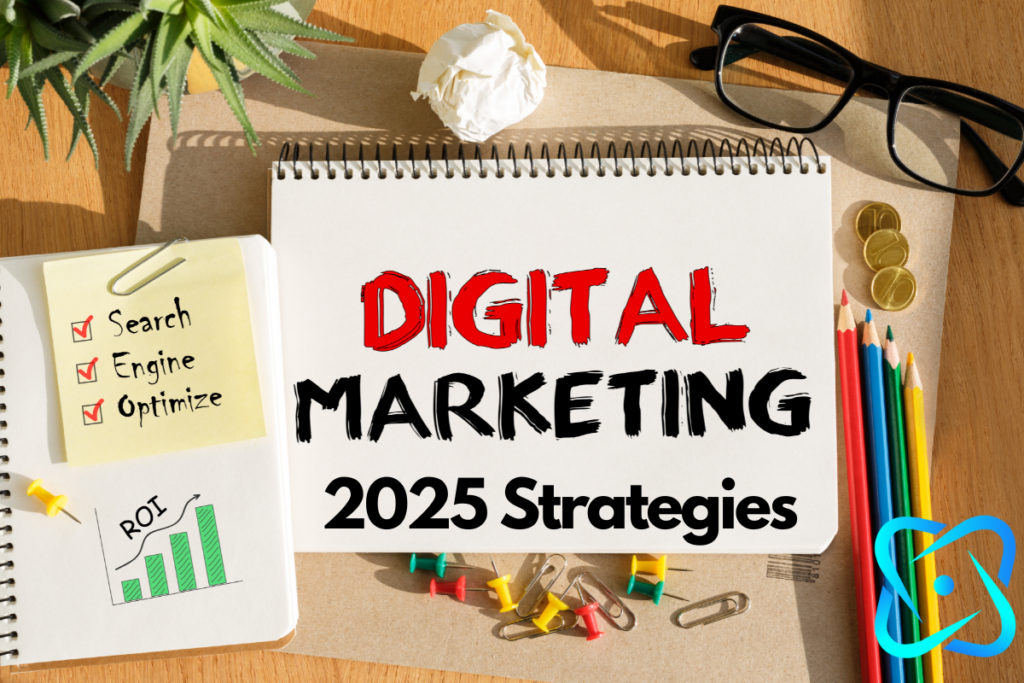Best Marketing Automation Tools and Techniques for 2025
In the fast-paced world of digital marketing, staying ahead of the curve is crucial. As businesses continue to leverage technology to enhance their marketing strategies, marketing automation has emerged as a key player in achieving efficiency and effectiveness. In 2025, the landscape of marketing automation is expected to evolve further, incorporating new tools and techniques that will redefine how businesses connect with their audiences. This blog post explores the latest trends, tools, and techniques in marketing automation, providing insights and actionable tips for marketers looking to optimize their campaigns.

Understanding Marketing Automation
Marketing automation involves using software platforms and technologies to automate repetitive marketing tasks. This can include email marketing, social media posting, ad campaigns, and more. By automating these tasks, businesses can save time, reduce human error, and improve the overall efficiency of their marketing efforts.
The Importance of Marketing Automation in 2025
As we move into 2025, the importance of marketing automation continues to grow. According to a recent study, 76% of companies are using marketing automation, and 91% of the most successful users agree that it is “very important” to the overall success of their marketing across channels (HubSpot, 2023).
Top Marketing Automation Tools for 2025
Identifying the right tools is essential for implementing effective marketing automation strategies. Here are some of the top tools that marketers should consider in 2025:
1. HubSpot
When it comes to marketing automation, HubSpot consistently stands out as a leader, offering a comprehensive suite of tools designed to streamline and enhance your marketing efforts. Whether you’re a small business owner or part of a large enterprise, HubSpot’s platform is tailored to meet a diverse range of needs, making it an invaluable asset in the marketing world.
1. All-in-One CRM Solution
HubSpot’s CRM tools are at the heart of its platform, providing businesses with the ability to manage customer relationships effortlessly. From tracking customer interactions to managing sales pipelines, HubSpot’s CRM is designed to be intuitive and user-friendly, ensuring that businesses can focus more on building relationships and less on managing data.
2. Simplified Content Management
Creating and managing content is a breeze with HubSpot’s content management tools. Whether you’re blogging, creating landing pages, or sending out email campaigns, HubSpot provides a seamless experience. Its content management system is built to integrate with your existing marketing strategies, ensuring that your content is always aligned with your business goals.
3. Effective Lead Nurturing
Lead nurturing is crucial for converting prospects into customers, and HubSpot excels in this area. With automated workflows, targeted email campaigns, and personalized content, businesses can engage leads at every stage of the buying journey. HubSpot’s lead nurturing tools are designed to build trust and foster long-term relationships, ultimately driving higher conversion rates.

4. User-Friendly Interface
One of the standout features of HubSpot is its user-friendly interface. Even for those who aren’t tech-savvy, navigating HubSpot’s platform is a straightforward experience. This ease of use means that marketing teams can quickly get up to speed and start leveraging the platform’s full capabilities without a steep learning curve.
5. Robust Analytics for Data-Driven Decisions
In an era where data is king, HubSpot provides marketers with robust analytics tools to track performance and inform strategic decisions. From website traffic and email open rates to social media engagement and lead conversion metrics, HubSpot offers comprehensive insights that allow marketers to refine their strategies and optimize results.
2. Marketo
When it comes to advanced marketing automation, Marketo, now proudly part of the Adobe family, stands out as a leader in the field. Renowned for its robust set of features, Marketo offers unparalleled capabilities in email marketing, consumer marketing, and lead management. But what exactly makes it such a valuable tool, especially for B2B companies aiming for in-depth insights and seamless integrations?
1. Why B2B Companies Love Marketo
For B2B companies, the journey from lead generation to conversion is often complex and requires a well-thought-out strategy. This is where Marketo shines. Its advanced lead management system allows businesses to track and nurture leads through every stage of the sales funnel. With detailed insights into customer behavior and preferences, companies can tailor their marketing efforts to address specific needs and pain points, ultimately improving conversion rates.
2. Email Marketing: Precision and Personalization
Email marketing remains a cornerstone of digital marketing strategies, and Marketo offers a suite of tools that enhance this channel. Businesses can easily create personalized email campaigns that resonate with their audience, thanks to Marketo’s sophisticated segmentation and targeting features. Whether you’re looking to engage potential leads or nurture existing clients, Marketo ensures your message hits the right inbox at the right time.
3. Consumer Marketing: Building Lasting Relationships
Marketo isn’t just about generating leads; it’s about creating meaningful, long-term relationships with consumers. Its consumer marketing capabilities help businesses engage with their audience on a more personal level, fostering loyalty and trust. By leveraging dynamic content and behavior-driven campaigns, companies can deliver relevant messages that keep their brand top-of-mind.
4. Seamless Integrations for Holistic Marketing
One of the standout features of Marketo is its ability to integrate seamlessly with a host of other platforms. This allows businesses to create a cohesive marketing ecosystem, where data flows effortlessly between systems, providing a comprehensive view of marketing performance. Whether you’re integrating with a CRM system, social media platforms, or analytics tools, Marketo ensures that all parts of your marketing machine are working in harmony.
5. In-Depth Insights for Better Decision Making
Data is at the heart of modern marketing, and Marketo provides the insights needed to make informed decisions. Its analytics tools offer a deep dive into campaign performance, customer engagement, and lead conversion metrics. With this information at their fingertips, marketing teams can refine their strategies, optimize their efforts, and maximize ROI.
3. ActiveCampaign

If you’re running a small to medium-sized business, you’re likely always on the lookout for tools that can streamline your operations without breaking the bank. Enter ActiveCampaign, a powerhouse in the realm of email marketing automation and customer experience automation. This platform has carved out a niche as a go-to solution for businesses aiming to enhance their marketing strategy while keeping costs in check.
1. Why ActiveCampaign Stands Out
ActiveCampaign isn’t just about sending out emails—it’s about creating meaningful interactions with your customers through personalized and automated messaging. Its robust features are designed to cater to businesses that need more than just a basic email marketing service. With ActiveCampaign, you can segment your audience, create dynamic content, and set up automation workflows that nurture leads and convert them into loyal customers.
2. Cost-Efficiency Meets Comprehensive Features
One of the standout aspects of ActiveCampaign is its affordability, especially considering the breadth of features it offers. Businesses can enjoy advanced marketing tools without a hefty price tag, making it an attractive option for companies that need to maximize their budget. From email marketing and CRM integration to sales automation and machine learning capabilities, ActiveCampaign provides a versatile platform that scales with your business.
3. Tailored for Businesses of All Sizes
While ActiveCampaign is particularly beneficial for small to medium-sized businesses, its scalability means it can grow with you. Whether you’re just starting out or you’re looking to expand your reach, ActiveCampaign’s flexible plans and diverse feature set make it suitable for businesses at various stages of growth.
4. Salesforce Pardot
For businesses already utilizing Salesforce, Pardot emerges as a powerful ally in the realm of marketing automation.
1. Streamlined Integration with Salesforce
One of the standout benefits of Pardot is its seamless integration with Salesforce. This integration allows businesses to leverage their existing CRM data, ensuring that marketing efforts are directly aligned with sales strategies. The synchronization between Pardot and Salesforce means that data flows effortlessly, reducing the need for manual data entry and minimizing the risk of errors. This streamlined process ensures that marketing and sales teams are always on the same page, facilitating better communication and more effective collaboration.
2. Robust Lead Generation Features
Pardot shines in its ability to generate high-quality leads. Its lead generation tools are designed to capture, nurture, and convert prospects efficiently. Features like customizable forms and landing pages enable businesses to attract potential clients with ease, while advanced segmentation tools allow for personalized communication that resonates with individual prospects. By targeting the right audience with the right message, businesses can significantly enhance their lead conversion rates.
3. Comprehensive Tracking and Analytics
Understanding the effectiveness of your marketing campaigns is crucial for making informed decisions. Pardot’s robust tracking and analytics capabilities provide businesses with invaluable insights into their marketing efforts. With features that track user interactions across various channels, businesses can gain a comprehensive view of their customers’ journeys. These insights enable marketers to fine-tune their strategies, ensuring that every campaign is optimized for maximum impact.

4. A Strong Choice for Enterprise-Level Marketing
For enterprise-level businesses, scalability and flexibility are key considerations when choosing a marketing automation platform. Pardot is built to handle the complex needs of large organizations, offering customizable solutions that can grow with a business. Its powerful automation tools allow for sophisticated campaigns that can be tailored to different segments, ensuring that enterprises can maintain a personalized touch even at scale.
Techniques to Enhance Marketing Automation
To maximize the benefits of marketing automation tools, marketers need to implement innovative techniques. Here are some techniques that can enhance your marketing automation strategy in 2025:
1. Personalization and Segmentation
Personalization is no longer optional; it’s a necessity. Use data to segment your audience and tailor your messages to meet their specific needs and preferences. According to Accenture, 91% of consumers are more likely to shop with brands that provide relevant offers and recommendations.
2. AI and Machine Learning
Incorporating AI and machine learning into your marketing automation can help predict customer behavior, optimize campaigns in real-time, and improve decision-making. These technologies can analyze vast amounts of data to deliver insights that were previously unattainable.
3. Multi-Channel Marketing
Today’s consumers interact with brands across multiple channels. Ensure your marketing automation strategy includes email, social media, SMS, and even push notifications to maintain a consistent brand experience.
4. Lead Scoring
Implement lead scoring to identify prospects that are most likely to convert. By assigning scores based on engagement and other factors, you can prioritize leads and focus your efforts on the most promising opportunities.
Measuring Success: Key Metrics to Track

To determine the success of your marketing automation efforts, it’s crucial to track and analyze key metrics. Here are some metrics to focus on in 20245:
1. Conversion Rate
Track how many leads are converting into customers. A high conversion rate indicates that your marketing messages are resonating well with your audience.
2. Engagement Rate
Measure how your audience interacts with your content. High engagement rates often translate to better brand loyalty and increased sales.
3. ROI
Calculate the return on investment for your marketing automation campaigns to ensure they are contributing positively to your bottom line.
Conclusion: Preparing for the Future of Marketing Automation
As we look toward 2025, marketing automation will continue to evolve, offering new opportunities for businesses to connect with their audiences more effectively. By leveraging the right tools and techniques, marketers can streamline their efforts, enhance customer experiences, and drive growth. Stay informed about the latest trends and continually assess your marketing strategies to ensure they align with your business goals. Embrace marketing automation to not only survive but thrive in the competitive digital landscape.



